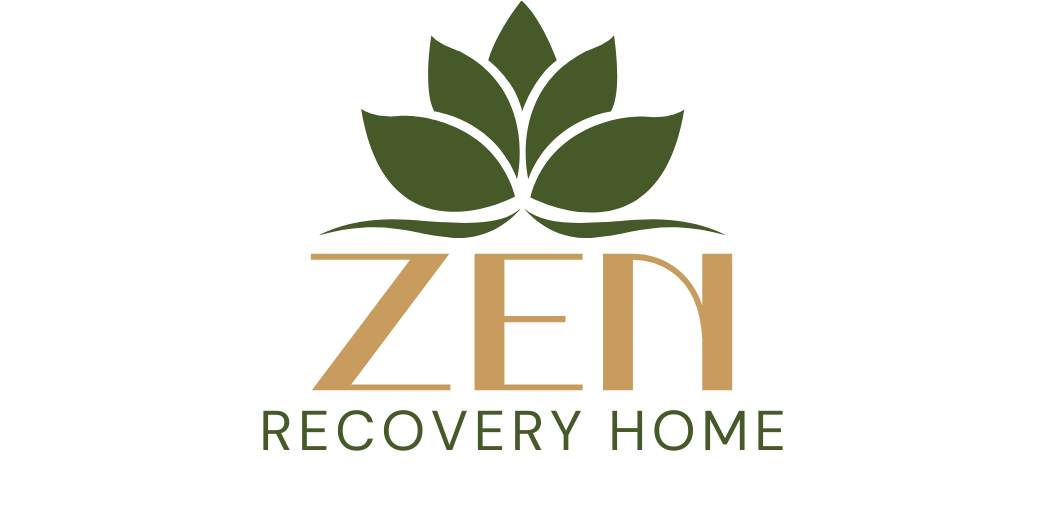Treating Serious Mental Illness and Addiction Together
When someone lives with a Serious Mental Illness (SMI) or Serious Emotional Disturbance (SED)—such as schizophrenia, schizoaffective disorder, bipolar disorder, or severe depression—everyday life can feel overwhelming. Add substance use into the picture, and the challenges multiply. But so does the need for hope.
At Zen Recovery Home, we see the pain and complexity of co-occurring disorders every day. And we also see recovery. Real, tangible progress. Lives slowly rebuilding. Families reconnecting. It’s not easy—but it’s possible. And it starts with understanding what co-occurring recovery really means.
What Is SMI or SED—and Why Does It Matter in Addiction Recovery?
A Serious Mental Illness (SMI) is a diagnosable mental health condition that substantially interferes with major life activities. This may include:
Schizophrenia or schizoaffective disorder
Bipolar I disorder
Major depressive disorder (with severe impairment)
Severe PTSD or anxiety disorders
In children and adolescents, this may be referred to as a Serious Emotional Disturbance (SED) when the condition disrupts functioning at home, in school, or in social settings.
When someone with SMI or SED also has a Substance Use Disorder (SUD), it’s called a co-occurring disorder or dual diagnosis. And it’s incredibly common.
According to SAMHSA, over 50% of people with SMI will experience a substance use disorder in their lifetime.
Why? Because when the mind feels out of control, substances can offer a dangerous illusion of relief. Alcohol may temporarily quiet racing thoughts. Meth might feel like an escape from the fog of depression. But in reality, substances make the symptoms worse over time—and create new risks, like overdose, psychosis, incarceration, and homelessness.
What Co-Occurring Recovery Actually Looks Like
Recovery for someone with a dual diagnosis isn’t a one-size-fits-all path. It requires integrated treatment—where mental health and addiction are addressed at the same time, in the same setting.
At Zen Recovery Home, our approach includes:
Medication management for psychiatric stability
Therapy that blends addiction recovery with mental health support
Trauma-informed care for clients with PTSD or past abuse
Structured daily routines that provide safety and predictability
Life skills training, peer support, and relapse prevention
Family involvement—because healing rarely happens alone
It also requires patience. For individuals with SMI, the path is often nonlinear. They may experience hospitalizations, relapses, and setbacks. But every step forward counts. Recovery doesn’t mean the symptoms vanish—it means the person learns to manage them and build a life worth living.
What Families Need to Know (And Why They’re So Important)
If you love someone with a serious mental illness and substance use disorder, you may already know how exhausting, heartbreaking, and confusing it can be. You’ve probably asked yourself:
Why won’t they just take their meds?
How do I help without enabling?
What if they end up on the street?
How much is too much to give?
You’re not alone. Families are often the front line of support—and the first to burn out.
Here are a few guiding truths we share with families in our care:
1. It’s Not Your Fault
Mental illness and addiction are not caused by bad parenting. Genetics, trauma, environment, and brain chemistry all play a role. Shame only gets in the way of healing.
2. You Can Be Supportive Without Sacrificing Yourself
Your role isn’t to fix or carry your loved one—it’s to walk beside them when they’re willing to receive support. This means:
Encouraging treatment
Holding compassionate boundaries
Learning about their condition
Getting your own support system
3. Boundaries Are Not Rejection
Setting limits—whether that’s around money, housing, or emotional energy—is not abandoning your loved one. It’s creating the space needed for accountability and growth. Boundaries protect everyone’s mental health.
4. Connection Matters More Than Control
You may not be able to control your loved one’s choices. But you can maintain connection. Stay in relationship. Send texts. Make time for coffee. Listen more than you lecture. Recovery is more likely when people feel seen, not shamed.
The Need for Community Care & Long-Term Support
Let’s be honest: our systems are not built for people with complex needs. Too often, individuals with SMI and addiction are left to fall through the cracks—between psych hospitals, jail cells, shelters, and emergency rooms.
That’s why community-based care is essential. It means:
Residential treatment programs like Zen Recovery Home
Ongoing outpatient care and case management
Access to housing and vocational support
Integrated care between mental health, addiction, and primary care providers
Crisis plans, peer support, and structured follow-up
Recovery doesn’t end at discharge. It’s a lifelong process that requires a village—and a system designed to support the most vulnerable, not abandon them.
Final Thoughts: Hope is Real—Even with SMI and Addiction
Serious mental illness and addiction can feel like an impossible combination. But we’ve seen time and again: people do recover.
Not perfectly. Not quickly. But truly.
They find stability. They build relationships. They learn to manage voices, flashbacks, impulses. They become mentors. Volunteers. Parents. Artists. Workers. Human beings with dignity.
And they don’t do it alone.
If you’re living with a co-occurring diagnosis—or love someone who is—know this: there is help, and there is hope.
At Zen Recovery Home, we treat the whole person with real compassion, clinical expertise, and a belief that every life has value—no matter how complicated the story.
Need support?
Call us, email us, or just start the conversation. Whether it’s with us or someone else, we’ll help you find the right path. Because recovery isn’t just possible—it’s deserved.

